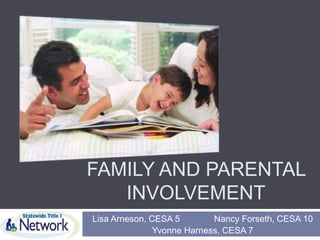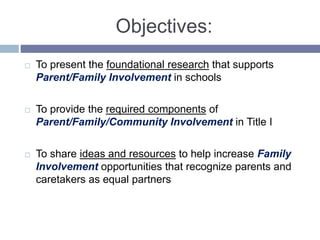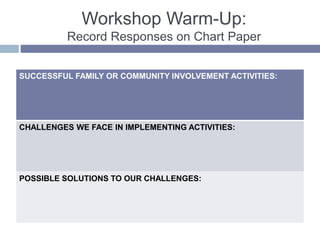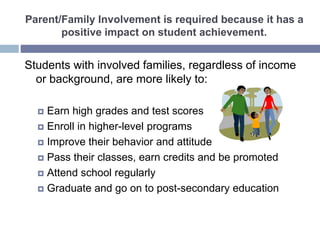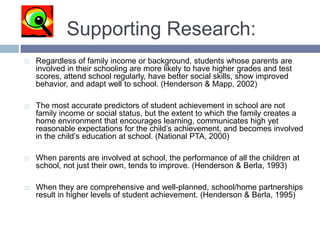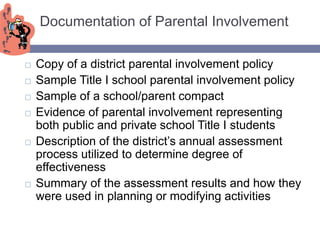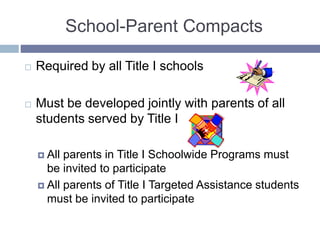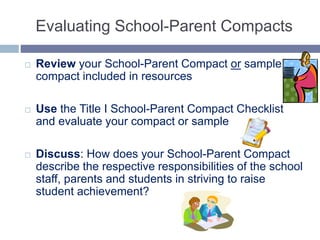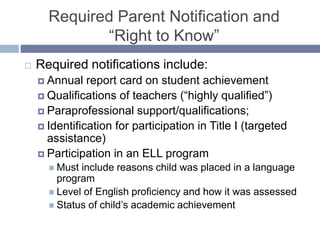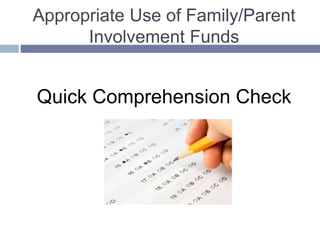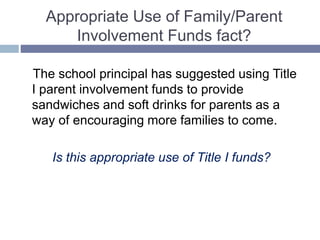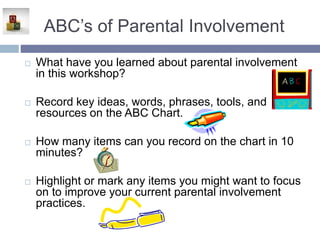The document provides information on family and parental involvement for a workshop, including objectives to present research supporting parental involvement, requirements for Title I parental involvement, and ideas and resources to increase family engagement. It includes sample parental involvement policies, compacts, and assessment tools for districts and schools to utilize. The overall purpose is to help districts and schools strengthen family partnerships to support student achievement.
